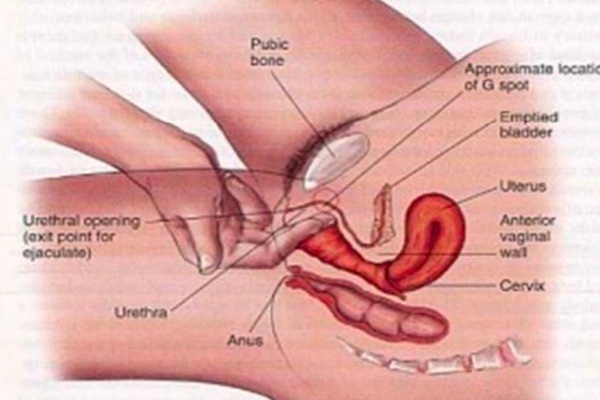Healthy Emotions – Healthy Heart

How detoxing your emotions can be beneficial to your heart’s health
Detoxing is it seems, trendy. Everyone it seems wants to eat ‘cleanly’ and you can find hundreds of websites, books and articles outlining different detox recipes and ways to eliminate impurities and cleanse the body.
There is no doubt that sometimes a good physical detox can be beneficial; even little thing like increasing hydration can make a big difference to how we think and function, but I believe that it is just as important to cleanse the mind and body of negative emotions. Indeed, cleansing yourself of negative emotions can have a great benefit to your whole health and well-being.
When we experience stressful emotions like anger, anxiety, and depression we tend to focus and vocalise how bad they make us feel, but what is not so obvious is the damage that these emotions can have on our physical bodies.
The work of the late Dr. Candace Pert in her book, ‘Molecules of Emotions’ details how whilst emotions may feel like they are held in the head, emotions are rooted in our physical beings, that is, emotions are stored in every cell in our bodies cellular memory.
The global INTERHEART study (a study devoted to examining the affect of potentially modifiable risk factors associated with myocardial infarction in 52 countries), revealed that psychosocial factors like stress and depression are comparable to hypertension and abdominal obesity when it comes to risk factors for developing heart disease.
Be happy
Another study led by Karina W. Davidson, Ph.D., of Columbia University Medical Center gives findings that conclude that unhappy people run a 22% higher risk of contracting heart disease than those that are happy.
Some research suggests that depression may increase inflammation and cause the blood to clot more quickly, which can damage blood vessels and thicken artery walls. The link between happiness and longevity is one that has been long recognised and a report by the English Longitudinal Study of Ageing (ELSA) at University College, London (UCL), claims that over-50s who experience feelings of satisfaction about their life are more likely to benefit from longevity.
The ELSA report asked four questions across a range of topics, on three separate occasions over a period of time, (2002 and 2006). The questions related to a participant’s family life, social circle and their working life. It found that the more participants claimed to have experienced “sustained wellbeing” over time, the lower their risk of death became.
It is certain that being happy and adopting a positive thinking attitude is not just about achieving your goals; indeed there are many benefits to positive thinking which include:
- Living on average 7.5 years longer than those with a negative or unhappy outlook
- Improved immunity
- Reduced heart disease risk
- Stress and anxiety reduction
In addition to ridding your body of negative emotions and becoming positive, there are some other markers of healthy aging that can boost your chances of longevity which include:
- Low blood pressure (reports say this can add 4 years to your life expectancy)
- Low cholesterol readings (report findings say this can add 4 year to your life expectancy)
- Healthy weight: 1 to 3 years (this can add between 1-2 years to your life according to research findings)
- Not smoking: (it’s not surprising that research shows not smoking can add 14 years to your lifespan)
- Regular exercise: (1 to 3 years can be added to life expectancy through adopting a regular exercise regime)
Be aware of your emotions
So in conjunction with making some healthy lifestyle and diet choices you need to also address those stagnant emotions that you are harboring and it all starts with being aware of your emotions. Most of us have a natural tendency to avoid facing up to our emotions meaning that we repress our emotions instead of dealing with them. This is because they are often painful, deeply disturbing or distressing and upsetting to face-up-to. We might try to repress our negative emotions by pretending everything is alright when it isn’t – how many times have you said ‘’I’m fine’’, when nothing could be further from the truth? Other repressing techniques include: denying that any problem exists, turning to alcohol, comfort eating, addictions or using media, television or the internet for distraction. Unfortunately, negative emotions and negative feelings don’t just go away. Instead the negativity is left to fester away inside you and will eventually become overwhelming and rise to the surface. The best thing to do when you are feeling angry or down is to be aware of the emotions inside you and allow yourself to fully feel them and release them.
Although releasing negative emotions is perhaps not as easy as it sounds. Emotional Detox expert and author, Mal Weeraratne, explains that ‘negative emotions are often buried, but they are not forgotten’. He elaborated by saying, ‘Whether you are recalling good or bad memories your body is programmed to be able to be able to repeat the emotional experience which can be accessed through the body in many ways’’. Mal Weeraratne recommends deep tissue bodywork, an alkaline diet, time in nature, sounding exercises and deep breathing exercises. He confirmed that it is essential for overall health and well being that negative emotions are released.
We may not always see the connection between our emotional and physical health, but the scientific evidence shows us that there is indeed a connection between the two. Therefore, for optimum heart health and overall well-being, it is important to purify not only your physical body but also your mind. Perhaps it’s time to put down the juicing machine and lie down on the yoga mat and consider releasing trapped negative emotions.
Mal Weeraratne, founder of the Tantric Journey School of Healing & Awakening has created a powerful and transformative form of therapy that is capable of releasing negative emotions stored at a cellular level within the body. If you would like to find out more, please visit the website here.











